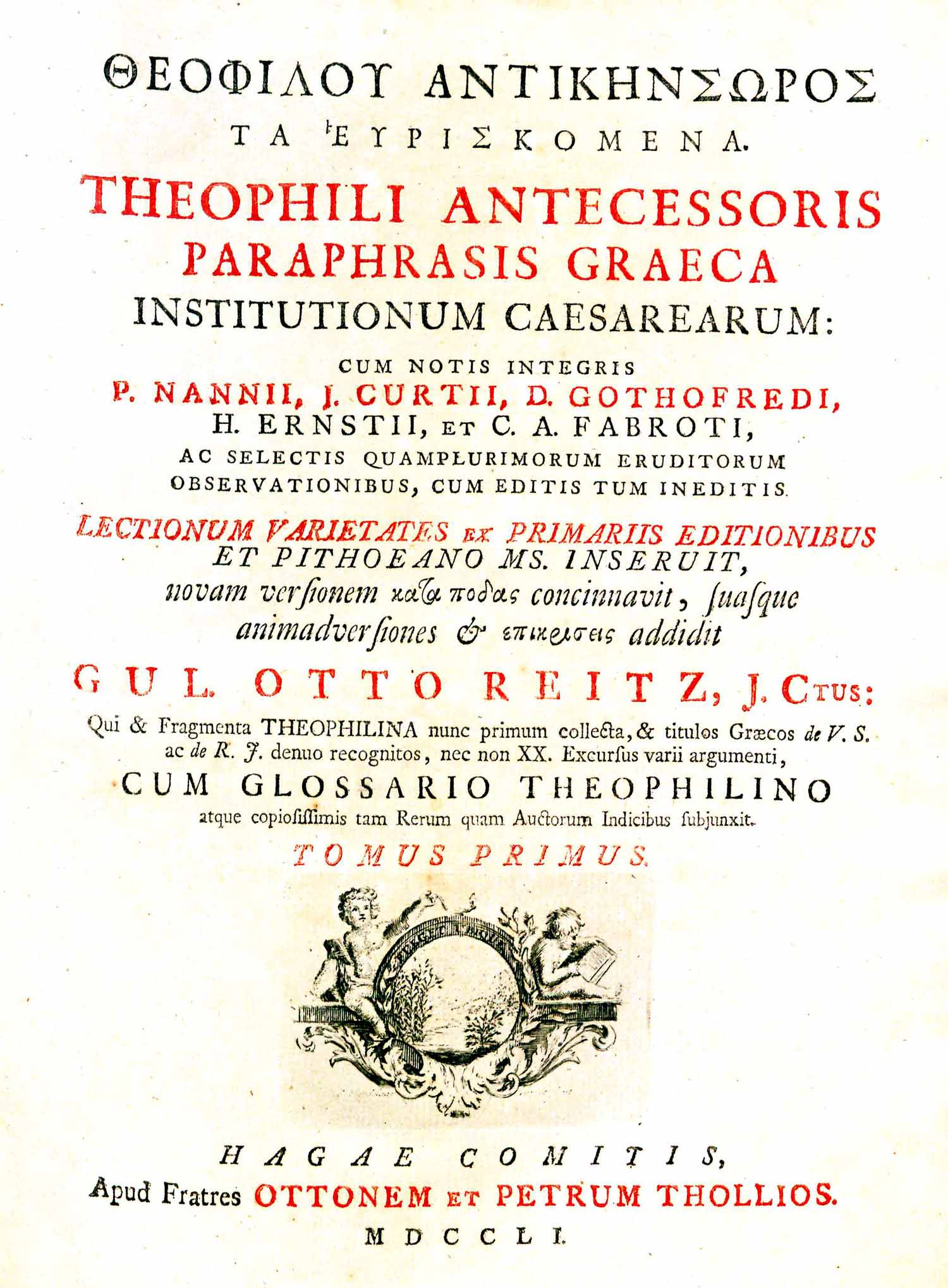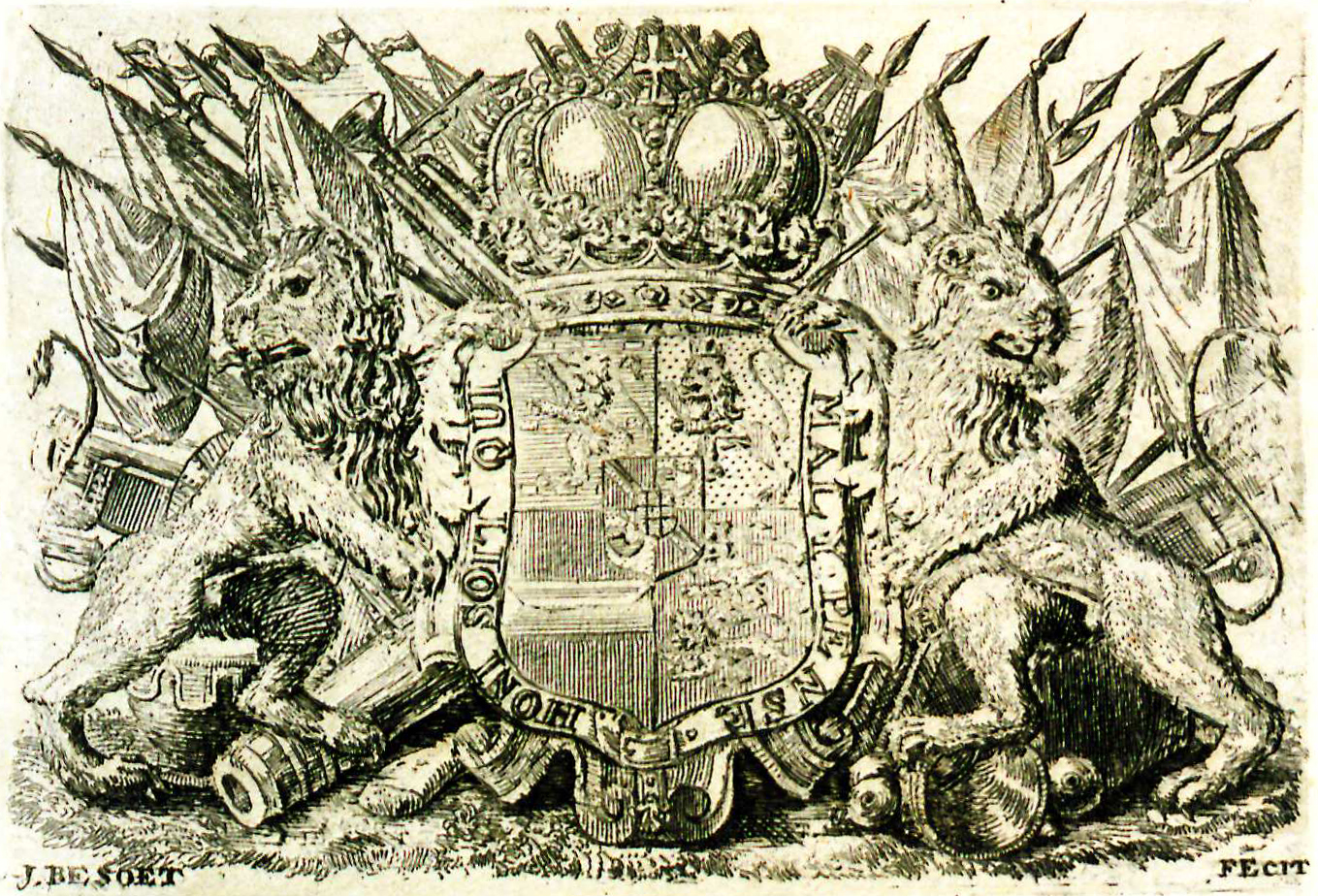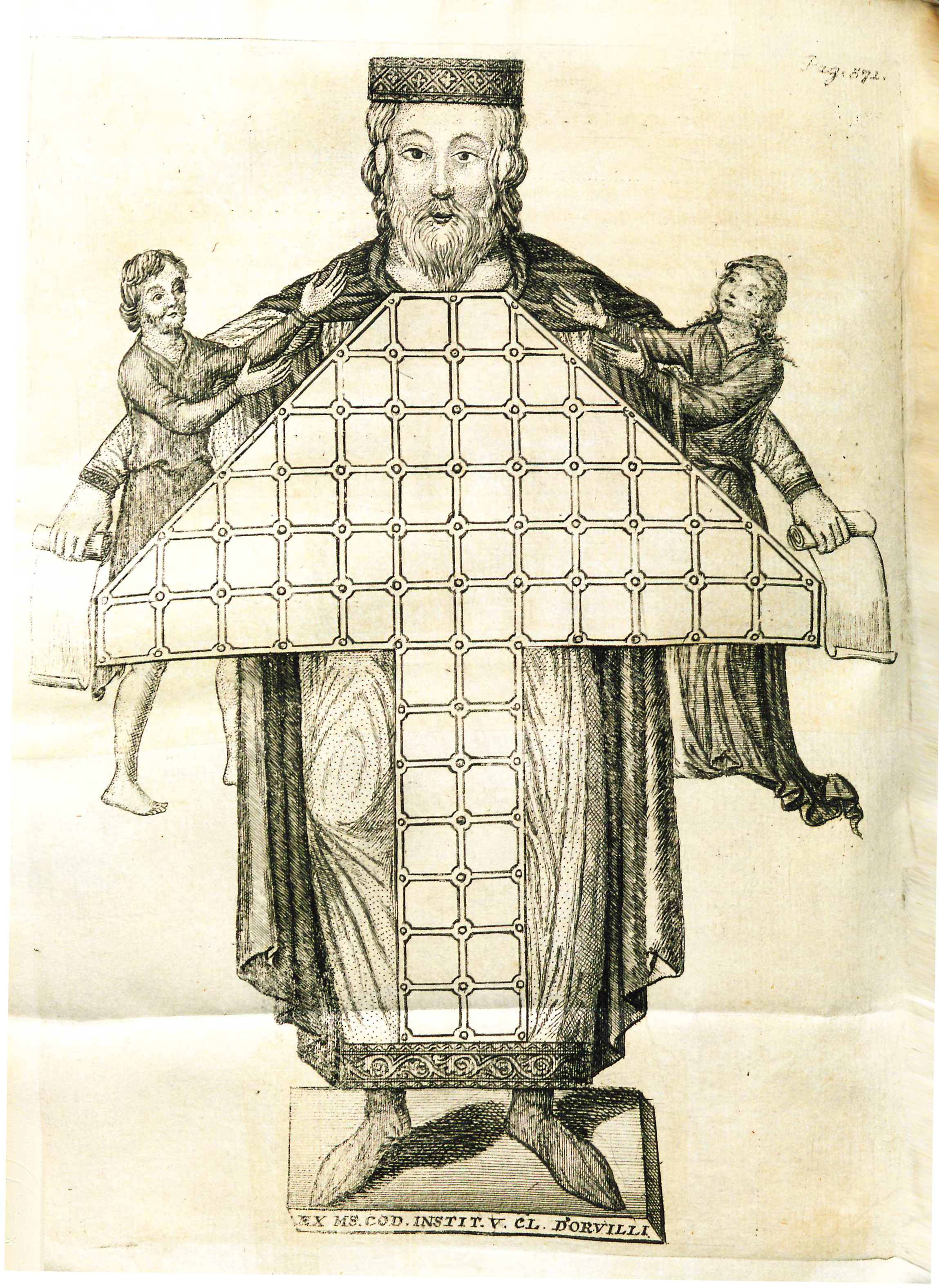Difference between revisions of "Theophilou Antikēnsōros ta Heuriskomena"
| Line 1: | Line 1: | ||
| − | {{DISPLAYTITLE: | + | {{DISPLAYTITLE:''Theophilou Antikēnsōros ta Heuriskomena: Theophili Antecessoris Paraphrasis Graeca Institutionum Caesarearum''}} |
| − | |||
===by Theophilus=== | ===by Theophilus=== | ||
__NOTOC__ | __NOTOC__ | ||
| Line 24: | Line 23: | ||
Bound in contemporary Dutch gilt prize vellum with stamped decorations to spine and covers. | Bound in contemporary Dutch gilt prize vellum with stamped decorations to spine and covers. | ||
| − | + | View the record for this book in [https://catalog.swem.wm.edu/Record/3719560 William & Mary's online catalog.] | |
==References== | ==References== | ||
Revision as of 17:04, 17 March 2015
by Theophilus
| Theophilou Antikēnsōros ta Heuriskomena | |
|
Title page from Theophilou Antikēnsōros ta Heuriskomena, George Wythe Collection, Wolf Law Library, College of William & Mary. | |
| Author | Theophilus |
| Translator | Wilhelm Otto Reitz |
| Published | Hague Comitis: apud fratres Ottonem et Petrum Thollios |
| Date | 1751 |
| Language | Greek and Latin |
| Volumes | 2 volumes in 1 volume set |
| Desc. | 4to (26 cm.) |
This is the Latin version of Justinian's Institutes with Theophilus' "rather longer" Greek paraphrase.[1] One of the works in Corpus Juris Civilis, the Institutes was part of the Emperor Justinian's "revised system of legal education."[2] It was intended as a "book for beginners" that organizes and summarizes the entries in the Digest—another part of Corpus Juris Civilis that preserved the writings of classical jurists.[3] Two law professors and members of the commission that created the Digest, Theophilus of Constantinople and Dorotheus from Beirut, were chosen to edit and compile the four books of the Institutes with Justinian’s chancellor, Tribonian, acting as final editor.[4] Although all ancient law was utilized, most of the content came from "the commentaries, institutions, and other writings of Gaius."[5] "Tribonian and the two professors also drew on Institutes written by Marcian, Florentinus, Ulpian, and Paul."[6] Dividing the work, Tribonian apparently assigned the first half to Dorotheus, the second to Theophilus. Unlike the Digest which was composed of "a patchwork of extracts"[7], the Institutes is dominated by essays that "achieve a bird's eye view of the law."[8]
Evidence for Inclusion in Wythe's Library
Wythe ordered "the Works of Theophilus in greek and latin, two volumes in quarto, published at the Hague in 1751, by Gul. Otto Reitz." from London merchant John Norton in a letter dated May 29, 1772. Records indicate the order was fulfilled.[9] All four of the Wythe Collection sources (Goodwin's pamphlet[10], Dean's Memo[11], Brown's Bibliography[12] and George Wythe's Library[13] on LibraryThing) list the 1751 edition of Theophilou Antikēnsōros ta Heuriskomena. The Wolf Law Library purchased a copy of the same edition.
Description of the Wolf Law Library's copy
Bound in contemporary Dutch gilt prize vellum with stamped decorations to spine and covers.
View the record for this book in William & Mary's online catalog.
References
- ↑ Justinian’s Institutes, trans. with intro. by Peter Birks and Grant McLeod (Ithaca: Cornell University Press, 1987), 12.
- ↑ Ibid.
- ↑ Ibid.
- ↑ The Institutiones, trans. George Harris (Harvard University: W. Green and T. Chaplin, 1814), xii.
- ↑ Ibid.
- ↑ Justinian’s Institutes, 12.
- ↑ Ibid.
- ↑ Ibid., 13.
- ↑ Frances Norton Mason, ed., John Norton & Sons, Merchants of London and Virginia: Being the Papers from their Counting House for the Years 1750 to 1795 (Richmond, Virginia: Dietz Press, 1937), 242-243. The letter is endorsed "Virga. 29 May 1772 / George Wythe / Recd. 21 September / Goods Entr. pa. 163/ Ans. the March 1773."
- ↑ Mary R. M. Goodwin, The George Wythe House: Its Furniture and Furnishings (Williamsburg, Virginia: Colonial Williamsburg Foundation Library, 1958), LIII.
- ↑ Memorandum from Barbara C. Dean, Colonial Williamsburg Found., to Mrs. Stiverson, Colonial Williamsburg Found. (June 16, 1975), 8 (on file at Wolf Law Library, College of William & Mary).
- ↑ Bennie Brown, "The Library of George Wythe of Williamsburg and Richmond," (unpublished manuscript, May, 2012) Microsoft Word file. Earlier edition available at: https://digitalarchive.wm.edu/handle/10288/13433.
- ↑ LibraryThing, s.v. "Member: George Wythe," accessed on March 20, 2014.
External Links
Read this book in Google Books.


